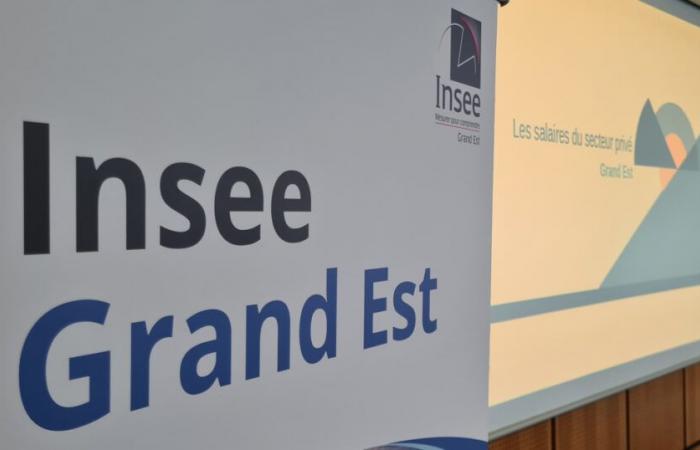
For the first time, the team at the National Institute of Statistics and Economic Studies (Insee) has conducted a study on the evolution of private sector salaries in the Grand Est region. Covering the year 2022 compared to 2021, based on all companies’ nominative social declarations, the study illustrates a general drop in salaries in private companies of 1% on average for all socio-professional categories, in constant euros, i.e. taking into account the general increase in prices, namely inflation. Executives are the socio-professional category most affected with an average drop of 1.3% in constant euros, for an average net monthly salary reaching €3,970 in 2022.
This situation is part of the national dynamic. In the Grand Est region, the average net monthly salary reaches €2,360 compared to €2,380 for “provincial France”, that is to say France without counting the Île-de-France region, where salaries are on average much higher.
“In-place” employees avoid wage cuts
Contrary to the general dynamic in the region, employees qualified by INSEE as “persons in place” did not see their salaries decrease in 2022. This category corresponds to “people occupying the same position and working the same number of hours between 1er January 2021 and December 31, 2022″. Representing 56% of the full-time equivalent workforce of private sector employees in the region, these workers received an average increase of 1.1% in their salary over the period. “Incumbent” executives even saw their monthly net salary increase by 1.7% on average in 2022 compared to 2021.
The main employees affected by this general drop in wages are therefore new entrants to the labour market and people newly appointed to their positions, particularly for executives. These employees generally replace employees who have retired and who received higher salaries, particularly due to their seniority in the company. New entrants, generally younger, therefore receive lower salaries.
Significant salary differences depending on employment areas
Another issue of the study is the illustration of the differences in salary levels according to the employment zones (ZE) in the Grand Est. The region has 26 in total. INSEE reveals that salaries are generally higher in Alsace than in the rest of the Grand Est. Only three employment zones are exceptions in the west of the region: the ZE of Épernay, which is the one with the highest average monthly net salary (€2,582), the ZE of Reims and that of Romilly-sur-Seine, with an average salary between €2,400 and €2,500.
“These gaps are partly explained by differences in sectoral composition and distribution of CSPs according to the territories […] These structural disparities explain on average 60% of salary differences,” specify the authors of the study. For example, in the employment zone of Épernay, 39% of private sector employees work in industry.
If in the ZEs of Épernay, Strasbourg and Saint-Louis, the average monthly net salary is higher than €2,500, on the contrary in the employment zones of Chaumont, Saint-Dié-des-Vosges and Remiremont, the average monthly net salary does not exceed €2,200.
Cross-border workers earn much more than their French counterparts
Another equally relevant topic for the Grand Est: the question of cross-border workers. For the first time, an economist from INSEE has looked at the average salary gaps between private sector employees in France and those who go to work in border countries. Whether in Germany, Belgium, Luxembourg or Switzerland, cross-border workers earn on average more than their counterparts in France: +26% in Belgium, +47% in Germany, +58% in the canton of Basel in Switzerland and even +65% in Luxembourg. “This first experimental work on cross-border workers marks the opening of a field to be explored in more depth in the Grand Est region”, concludes the author of the study.





